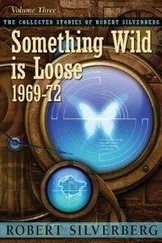A hoax. A plant. His head is swimming.
“Pardonnez-moi,” he says finally, unable for the moment to remember how to say “Excuse me” in Turkish. He lurches forward, sending Selim Bey skittering out of his way like a frightened gazelle, and stumbles like a wounded ox down the path that leads to the tent colony along the beach. He moves at a terrible speed, heedless of his injured leg, virtually unaware that he has legs at all: he might have been moving on wheels.
“Dr. Halvorsen? Dr. Halvorsen?” voices call from behind him.
He enters his tent.
I am extremely sorry to inform....I wish to offer our profound apologies....no justification can possibly be found....the tremendous injury that has been done to you....
Right. Right. Right.
The raki provides a kind of quick palliative. He takes a deep pull straight from the bottle, exhales, takes another, takes one more. Good.
Then he kicks off his boots and stretches out on his cot, facing upward. The day’s work is well along, out there on the dig, but he can’t bring himself to return to it. There is no way that he can face the others, now, after what he has just learned.
The impact of Selim Bey’s words is still sinking in. But there is no escaping the fact of his destruction. His theory is empty; he has wasted his time and expended the last of his professional capital on a foolish quest spurred by fraudulent clues.
As the lunch hour nears and Halvorsen still has not emerged from his tent, Feld and Martin Altman and Jane Sparmann come to him to see if he is all right. Even without knowing what it is that Selim Bey has told him, they evidently have guessed that it was highly upsetting news of some sort.
He tries to bluff it through. “There were some little questions about our permit application,” he tells them. “Trivial stuff, nothing to worry about. The usual bureaucratic nonsense.
“If we can help in any way, sir—”
“No need. No need at all.”
Halvorsen realizes, from the way they are looking at him, that they don’t believe a word he has said. They must be able to see the outward manifestations of the shock wave that has coursed through his body, the visible signs of his inner demolition. They can have no doubt now that he has heard something shattering from this morning’s visitor and that he is struggling to conceal it from them. There is a look of deep concern on their faces, but also, so it seems to him, sympathy verging on pity.
That is more than he can bear. He will not let them patronize him. Feld makes one more stammering offer of assistance, and Halvorsen replies brusquely that it is not necessary, that everything is all right, that he can handle the problem himself. His tone is so blunt that they are startled, and even a little angered, maybe, at this rejection of their solicitude. But he has left them no choice but to go. Jane Sparmann is the last to leave, hovering at the door of his tent an extra moment, searching for the right words but unable to articulate them. Then she too withdraws.
So, then. He is alone with his anguish. And the central issue remains. His occupation is gone. He has made himself something pitiable in the eyes of his colleagues, and that is intolerable.
Contemplating his options now in the face of this disaster, he sees that he really has none at all. Except one, and that is an even greater foolishness than the one that has brought him to this sorry shipwreck on the Turkish shore.
Nevertheless Halvorsen voices it, more out of rage than conviction.
He stares at the roof of the tent. “All right,” he says savagely. “It’s daytime here, now, but maybe you can hear me anyway. Are you there? Are you listening? I call your bluff. The offer is accepted. You can take over my life back here, and I’ll take over yours. Come and get me, if you can. Get me right now.”
Nothing happens. Of course not, Halvorsen thinks. What madness.
He remains motionless, listening to the wind. He hears voices outside, but no words, only faint, indistinct sounds. Perhaps that’s the wind too. He feels the faintest of tremors in the tips of his fingers, and perhaps the twitch of a muscle in his cheek, and a certain mild and quickly passing queasiness in the pit of his stomach. That is the raki , he thinks.
“Well?” he says. “No deal, eh? No, I didn’t really think there would be. You were just a fucking hallucination, weren’t you? Weren’t you?”
What else could it have been? he wonders. What else but an old man’s lunatic fantasies? Thoughts of a dry brain in a dry season, nothing more. It was shameful to have made the attempt, even in bitter jest. And now he must get up and go back outside, and formally accept the apologies that Selim Bey has come here to deliver, and explain to the others what has happened, and then go on to pick up the pieces of his life somehow, after all. Yes. Yes. Somehow. He will have to be strong in the face of the humiliation that will be his, but there is no choice. Up, then.
He rises to go outside.
But he discovers as he sets about the process of rising from the cot that he is no longer lying on it, nor is he in his tent, and that in fact he has been utterly changed: in a moment, in the twinkling of an eye. His aging, aching body is gone, and he is a gleaming metallic sphere that moves in a wondrously frictionless way, as if by magic; and when he emerges into the open air from the airless vaulted place in which he has awakened, he enters into a realm of mighty silence, and it is the apocalyptic glories of the Fifth Mandala that he sees under the thin yellow light of evening, the immense tumbled many-layered ruins of the great City of Cities, Costa Stambool, at the end of time.












